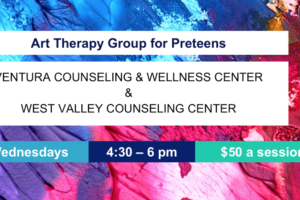Many of us have one or two friends that we affectionately and proudly call our “BFFs” our “ride-or-dies,” our “platonic soul-mates.” These lucky few know our hearts, our intimate secrets. They know how we feel about every one of our family members at Thanksgiving dinner. They know our favorite foods and which scars are from falling off our bicycles. And they know all about our crazy coworkers and shake their fists at the mention of some of our exes.
They’ve been living the “for better or worse” alongside us, often before we ever took our vows with anyone else. They’ve been the people to carry us through our many stages of life. Some of them may have even been our closest friends since grade school.
All this said, it’s important to remember that our friendships can change.
The evolution of friendships
There are no annual “friend-iversaries” or societal celebrations that really honor and capture our relationships with these kindred spirits with whom we’ve bared our souls. And what if our friendships change or evolve over time? What if we lose some of these essential human connections due to a life shift, a career change, or a big fight?
Let us first begin by breaking down the idea that a friendship is somehow less valuable than a romantic relationship. A friendship IS a relationship. Friends are often considered “chosen family.”
This makes our friends the people we choose to be tethered to, but we have so few books to turn to about the psychology of friendships. We are typically not reading about the 5 Friendship Love Languages or scouring the self-help aisle for what to do after a friendship break-up.
That doesn’t make friendships any less important than our other relationships, though.
Why friendships are unique
Often what can fascinate us about our romantic relationships is that we have a mirror. A person who sees us the way that no one else does. It’s true that our relationships can have a deep, complex intimacy that also takes physical form. It’s also true that that same mirror we seek in a relationship can be found in our friendships. Our platonic soulmates are also seeing us in a way that no one else has or perhaps ever will.
It seems that friendships are in their own category, with their own communication needs, attachment needs, and growing pains. Too often, it seems friendships end rather than grow. We have learned that in our relationships conflict is inevitable, but we might think that in our friendships, it is avoidable — and having it can be a death sentence.
That’s not the case, though. To sustain a healthy friendship over time, we need to normalize disagreement and learn how to communicate through it.
In our next blog, “Friendship Part 2,” we’ll talk about how to navigate obstacles in our friendships — and when it’s time to create boundaries in an unhealthy friendship.
If you want to talk to someone about this now, don’t hesitate to get in touch with our therapists. We’re here to help you. In fact, we can even set up therapy appointments to attend with your friend if you have something to work through together. Contact us to get started.





